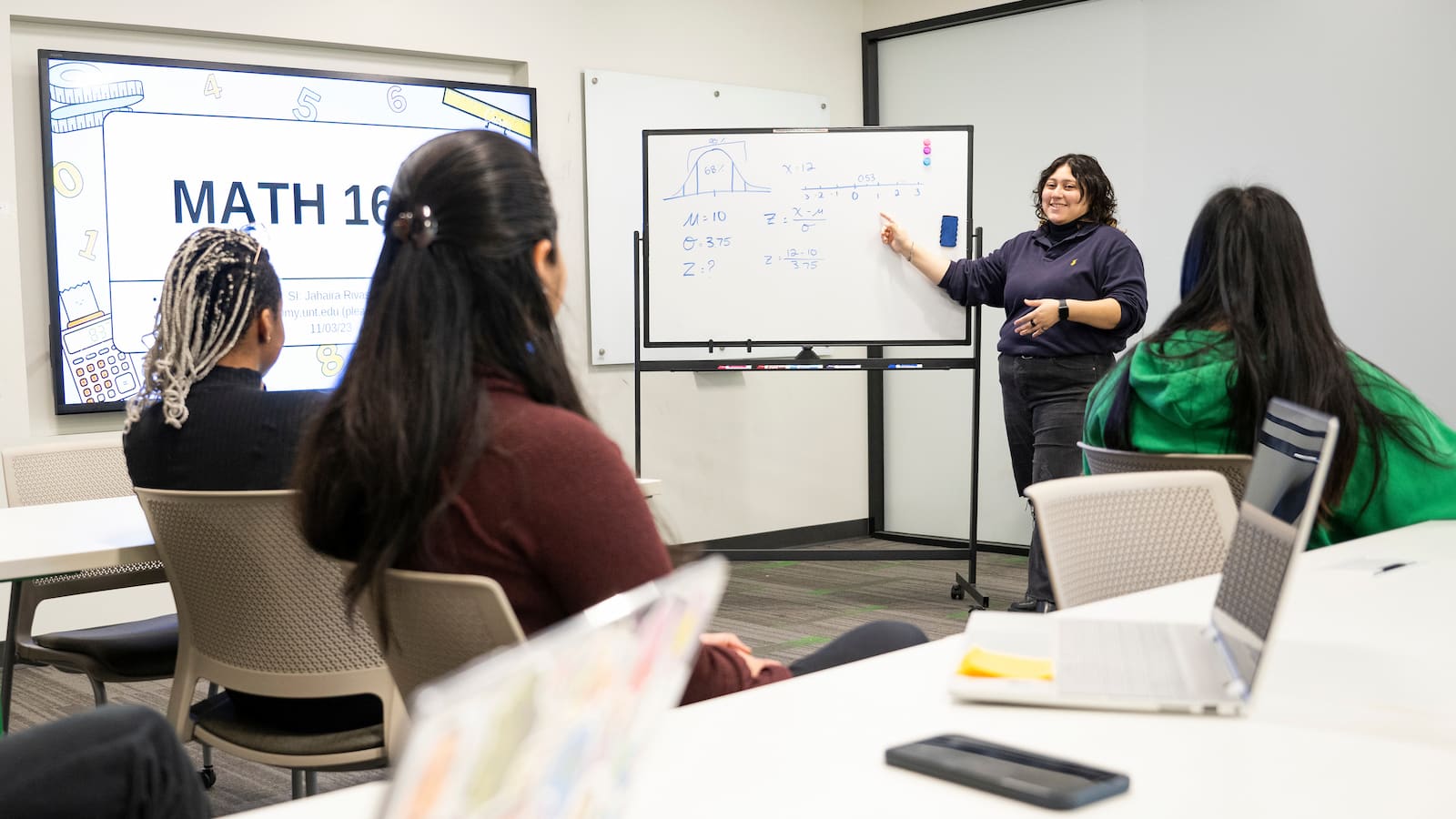- AcademicsDegree TypeLocations
- Admissions
- Tuition & Aid
- Student Life
- About UNT
- Research
- Athletics
- Giving

Master of Science in Mathematics (Mathematics Education Concentration)
M.S.
Program type:
Major
Format:
On Campus
Online
Est. time to complete:
3 years
Credit Hours:
36
A flexible master's program tailored to the professional development of secondary
mathematics teachers.
The Master of Science in Mathematics Education program provides certified secondary
mathematics teachers with the coursework needed to teach dual-credit (high school/college)
mathematics. Additionally, this degree provides college/university developmental mathematics
instructors with the coursework required to teach introductory level college- and
university-credit mathematics courses.
Want more info?
We're so glad you're interested in UNT! Let us know if you'd like more information and we'll get you everything you need.
Request More InfoWhy earn a degree in Master of Science in Mathematics (Mathematics Education Concentration)?
UNT offers courses tailored to meet the needs of practicing teachers, including graduate
level math courses, specialized math education content courses, and research methods
courses to enable working educators to become credentialed for teaching dual credit.
By offering specialized courses during summers and evenings, the master's program
offers professional development for working teachers, allowing them to enhance their
qualifications without disrupting their teaching responsibilities.
Marketable Skills
- Creative and analytical thinking
- Creative problem-solving
- Mathematical writing
- Pedagogical practices
- Applying theory to practice
- Conduct research
- Research presentation
Career Outlook
Our courses are tailored to meet the needs of practicing teachers aiming to:- Deepen their subject matter knowledge in secondary school mathematics and college-level mathematics content and curricula from an advanced perspective. This perspective considers not only the many interconnections among high school mathematics topics, but also their relationship to college-level mathematics.
- Enhance their pedagogical and curricular knowledge by investigating current issues and trends in mathematics education.
- Become more familiar with learning theories and research methods (both quantitative and qualitative) for conducting mathematics education research.
- Become members of professional learning communities and professional organizations and assume a more prominent role within the mathematics education community.
Master of Science in Mathematics (Mathematics Education Concentration) Courses You Could Take
History of Mathematics with Technology (3 hrs)
A survey of the development of major mathematical topics, including geometry, algebra,calculus,
and set theory. Technological tools are used to investigate theorems and applicationsof
mathematics.
Problem Solving for Secondary Teachers
A rigorous inquiry into problem solving, focusing on problems from various branches
of mathematics, such as algebra, geometry, combinatorics, probability, calculus, and
trigonometry. Emphasis is placed on the application of problem-solving techniques
to courses in secondary school settings.
Professional Project (3 hrs)
Complete an action research project under the guidance of a faculty mentor through
identifying an educational issue grounded in the context of their classroom teaching.
Learn More About UNT
Watch this video to learn more about what makes UNT great!